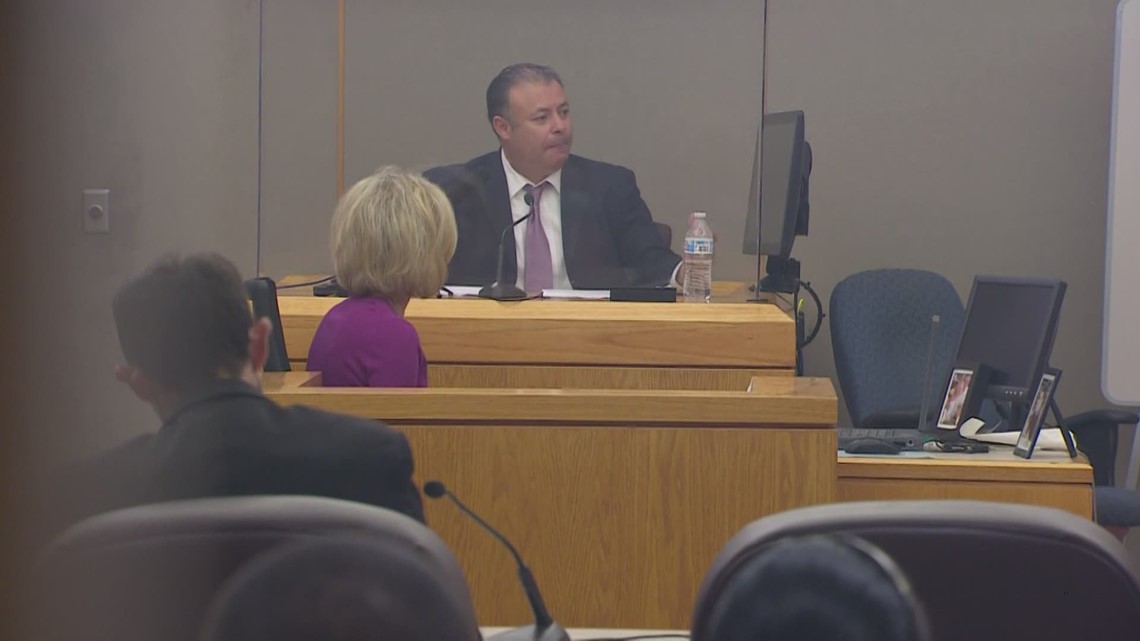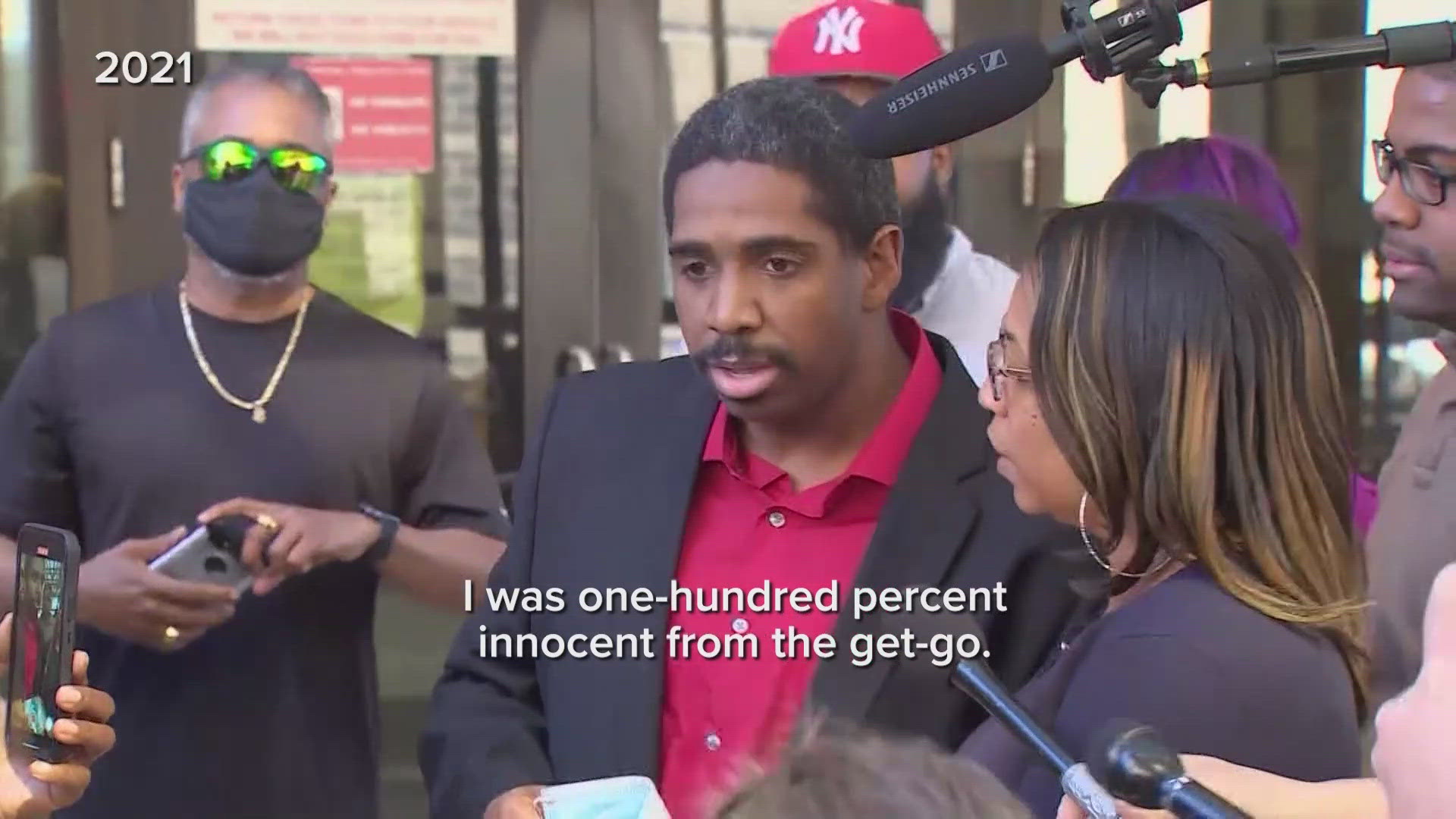DALLAS — The City of Dallas has agreed to settle with a former Dallas police officer who says a detective wrongfully orchestrated his arrest in the killings of two people.
Under the agreement, Bryan Riser will be paid more than three years of back pay, minus whatever earnings he’s made during that time. His attorneys expect the backpay to total about $300,000.
Riser was also reinstated in exchange for his resignation.
“It shows that he shouldn't have been terminated in the first place,” said his attorney Robert Rogers. “He's going to receive compensation that will allow him to to move forward with his life without this hopefully hanging over his head.”
The city decided to settle following a hearing last month before an administrative law judge. Riser was to have his firing overturned.
A separate federal civil rights lawsuit Riser filed against Dallas police detective Esteban Montenegro in 2022 is ongoing. The city is paying the detective’s legal bills and will be on the hook should Riser win a judgment against Montenegro.
It was warrants written by Montenegro that resulted in Riser’s March 2021 arrest on capital murder charges in the deaths of kill Saenz and Douglas.
Those warrants largely rested on the word of a convicted killer named Emmanuel Kirkpatrick.
By all accounts, Riser and Kilpatrick did know each other. They attended the same high school.
Kilpatrick had been in jail on murder charges for about two years when he came forward in August 2019, claiming that Riser had hired him to kill Saenz and Douglas. Saenz had lived with Riser’s father, who had been arrested on federal drug trafficking charges. Kilpatrick told police that the younger Riser believed she was an informant.
He claimed that he met Riser in a donut shop in February 2017 to plan one of the murders. He said Riser then drove him around in a black SUV and showed him where to find Douglas.
However, evidence presented during a 2021 court hearing showed that the dates of the cellphone data and the text messages did not line up with Kilpatrick’s account. Riser also never owned a black SUV.


The original warrants obtained by Montenegro also wrongly said Riser’s cell phone was in the area during the time frame of the killings. Montenegro attributed the error to a “cut-and-paste error” during the 2021 hearing.
“Clearly, tunnel vision was the problem in this case,” said Toby Shook, another attorney representing Riser.
Shortly after Riser’s arrest, his attorney provided WFAA with banking and other records that backed up his account.
Riser’s attorneys say Kilpatrick had every reason to lie. Kilpatrick was able to secure a deal where a capital murder charge was reduced to murder. He could have received life in prison without parole or the death penalty on a capital murder charge. As it stands, he will one day be eligible for parole.
Testimony in court showed more than a year before Riser’s arrest that Montenegro and other police officials had been told there was not sufficient probable cause to arrest Riser. Under Texas law, police cannot prosecute a person solely on the statement of an accomplice. Investigators must be able to back up those statements with evidence. Otherwise, it’s inadmissible.
Montenegro acknowledged during the hearing that police had not gathered any new significant evidence after that meeting with prosecutors.
“I still believe there’s enough probable cause there, okay,” Montenegro testified.
The judge did not agree.
At the end of a three-hour hearing, she found there was no probable cause and dismissed the charges against Riser and ordered that he be freed.
“There is no evidence Bryan Riser participated, was accomplice in a capital murder case, no credible evidence at all,” Shook said. “It's just a tragic situation that he was arrested, that he sat in jail for five weeks, and that his reputation was ruined.”
The city settled after the administrative law judge hearing Riser's termination appeal decided to throw out all but one of the allegations against Riser, namely that he told investigators that he met Kilpatrick once at a donut shop when Riser actually met Kilpatrick twice at the donut shop.
Riser’s attorneys say investigators turned a simple memory lapse into something nefarious.
“The detective decided what his theory was within the first hour of appearing on the scene and was going to make every fact fit that way whether it did or not,” Shook said.
Montenegro remains on the force. A grand jury declined to indict him on perjury and tampering with records charges last year. He is assigned to the auto pound. An internal affairs investigation is ongoing.
More Texas headlines:

